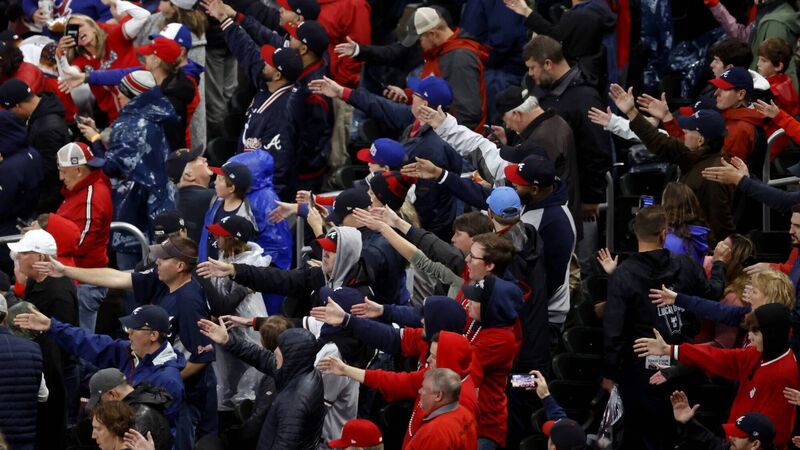John Riordan: Baseball's Tomahawk Chop adds fuel to bitter US culture wars

Fans do ‘the chop’ during the first inning in Game Three of the World Series between the Houston Astros and the Atlanta Braves at Truist Park. The gesture is regarded as offensive by many of the indigenous cultures of America.
It was the least loved World Series pairing in years.









